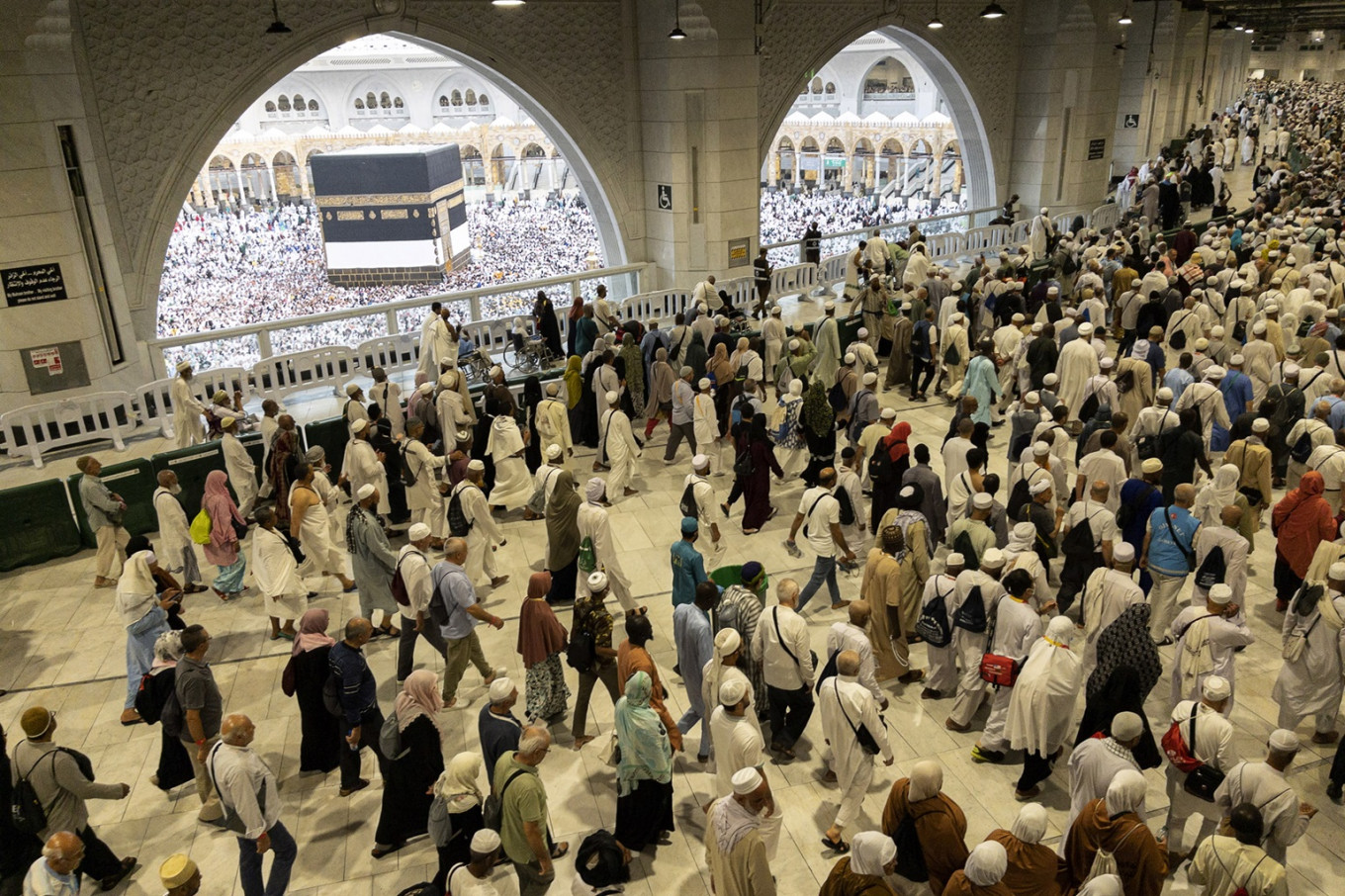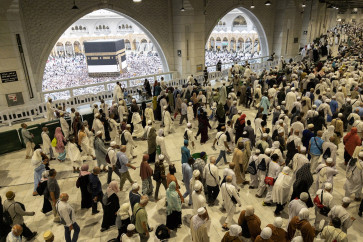Popular Reads
Top Results
Can't find what you're looking for?
View all search resultsPopular Reads
Top Results
Can't find what you're looking for?
View all search resultsMonopolstic practices bar efforts to improve haj services quality
Digital transformation and procedural reform in Indonesia's haj services market can help ensure fair competition among businesses toward providing better services for pilgrims.
Change text size
Gift Premium Articles
to Anyone
H
aj is a mandatory religious duty for Muslims worldwide, and millions in Indonesia partake in this pilgrimage annually. This year, 241,000 Indonesians performed the haj, a significant increase from previous years after Saudi Arabia lifted pandemic-related restrictions.
Historically, the number of Indonesian pilgrims has risen consistently, with a notable peak of 221,000 in 2017. The trend was interrupted by the COVID-19 pandemic, which caused a reduction in the number of pilgrims for three consecutive years.
As the largest Muslim-majority country, Indonesia faces significant logistical challenges in managing haj travel. Increasing costs, service quality issues and monopolistic practices have raised concerns among pilgrims. Addressing these issues through increased competition and strategic reforms is essential to improving the overall haj experience for Indonesian pilgrims.
A recent review by the House of Representatives Haj Supervisory Team highlighted the need for significant overhaul in the organizing the pilgrimage to improve overall quality. The team’s on-site inspection in Saudi Arabia identified several critical issues: poor basic services, alleged irregularities in the allocation of extra haj quotas, improper tent placement, inadequate sanitation (bathing and toilet) facilities and high costs.
The team noted that improper placement of tents caused overcrowding and left many pilgrims stranded. There were cases where tents designed for 80 pilgrims were forced to accommodate 120, leading to inadequate services and displacement. Additionally, a shortage of toilets led to long lines, prompting some pilgrims to relieve themselves outdoors.
The team also discovered that half of the extra quota allocated for special haj had been misappropriated, undermining justice for those who had been waiting years. Haj costs (BPIH) has also increased consistently to reach Rp 93.4 million (US$5,755) this year.
Despite efforts to manage costs, complaints about service quality persist, including delayed flight and inadequate accommodations, For instance, Garuda Indonesia faced significant criticism for flight delays and technical issues during haj operations, prompting the Transportation Ministry to formally reprimand the flag carrier and demand immediate improvements.



















